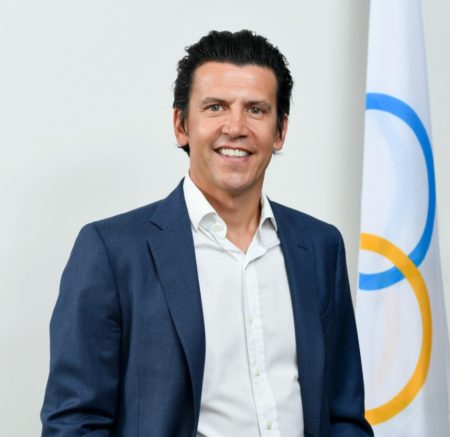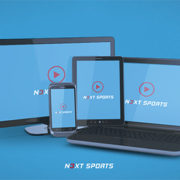Christophe Dubi is the Olympic Games Executive Director at the IOC. He oversees the management of all aspects of the Olympic and Youth Olympic Games, collaborating with partners across the Olympic Movement with the mission to ensure the Games remain the world’s premier sporting event and leave a lasting and meaningful legacy.
In this interview, we will deep dive into the evolution of the Olympic fan, the fan experience and journey in the Olympic Games, and the role of innovation within the Olympic Movement.

1. We are seeing a shift in sports consumption driven by a changing consumer and fan. What has been the evolution of the Olympic fan? And what is the IOC doing in order to adapt to this rapid change?
Fan behavior has shifted dramatically in recent years, choosing to watch and participate in their favorite sports in totally new ways. Their expectations of live events have also changed, expecting interactivity, compelling stories, and gamified experiences. They expect from sports events new and innovative experiences delivered in their terms, as they have gotten used to the brands and storytellers they love.
The Olympic fan of today wants to consume more from their sport by getting close to athletes, understanding their stories and the causes they support. Equally, consumers have shifted their online & overall media habits. The setting is constantly changing, and we are leading the way by making the Olympic Games more inclusive and accessible to everyone.
The recent IOC developments on digital, including the revamping of our platforms, is one example of how we have been staying in tune with this changing fan. The Olympic web and app platforms for Tokyo 2020 attracted more than 196 million unique users, drawing more than three times the amount of online traffic for the Olympic Games Rio 2016.
2. When it comes to OCOGs, one of your main stakeholders, how are you integrating the fan experience into the planning & delivery of the Olympic Games?
With increased focus on experiences in the decade ahead, the Olympic Games can benefit from thinking of itself as an experience platform with millions of individual moments created by Olympians and fans. Fans’ expectations go far beyond the competition itself, they are craving for meaningful experiences that transcend the ordinary.
Paris 2024 and the upcoming OCOGs have really positioned the fan experience at the heart of their Games, working hand in hand with our teams on innovative developments. These include the mass events (offering the possibility to our fans to run the marathon on the same course and same day as the Olympic athletes), the open warm-up (bringing our fans close to the athletes when they are training or warming up), and upcoming developments to welcome visitors and spectators with open arms in the host city.
3. With innovation being a hot topic and a necessary enabler of success, could you please explain to us the recently launched program about ‘Innovation in Action’?
Innovation is a team sport and we believe in the power of partnerships. That’s why we partnered with IMD and UEFA to launch a new academic program in 2021 named ‘Innovation in Action’. It looks at how to lead innovation across different industries taking real case examples from the sports and entertainment world. In this 6-week hybrid virtual & physical program, the participants connected with and learned from experts within the three organizations – IMD, IOC and UEFA, as well as Olympians and industry experts.
Through this program, the participants engaged in practical exercises around design thinking and innovation frameworks reflected on their own leadership style and effectiveness, and deep-dived into real-life innovation challenges. We created a space for truly open conversations and knowledge sharing in this first edition; it was also inspiring for us to exchange with other leaders driving innovation in their fields.
¨We are leading the way by making the Olympic Games more inclusive and accessible to everyone.¨
4. What innovation opportunities are the IOC making possible for OCOGs and Host Cities going forward?
We want the Olympic Games to be delivered in the most attractive and cost-efficient way, and this is where digital and innovation play a crucial role. But new tools or platforms can be expensive if each stakeholder in the Olympic Movement has to create them from scratch. One of the key aspects we can bring to OCOGs through innovation is the creation of operational and financial efficiencies. This was the objective of “The New Norm”, where we looked at what we call ‘turnkey solutions’. Some examples are the Tokyo 2020 mobile app which was developed from scratch by us and is now being re-skinned for the Olympic Winter Games Beijing 2022, building on the existing fanbase that followed the summer edition. Other areas such as data collection or cloud broadcasting have been centralized and made available from the IOC to OCOGs and stakeholders to bring their costs down.
Another great example of aggregation and innovative approach is our recent agreement on hospitality. The IOC and the OCOGs of the upcoming editions signed a multi-year deal with On Location to create a new global hospitality model for the Olympic Games Paris 2024, Milano-Cortina 2026 and Los Angeles 2028. On Location will work closely with each Organising Olympic Committee to deliver travel, accommodation, unique in-venue and host city hospitality packages for athletes’ families and friends, fans and stakeholders. This initiative, among others, is a recognition of the change that has happened in the market where events such as the Olympic Games are thought about as an experience platform with many ways to expand its impact beyond the sporting realm.



